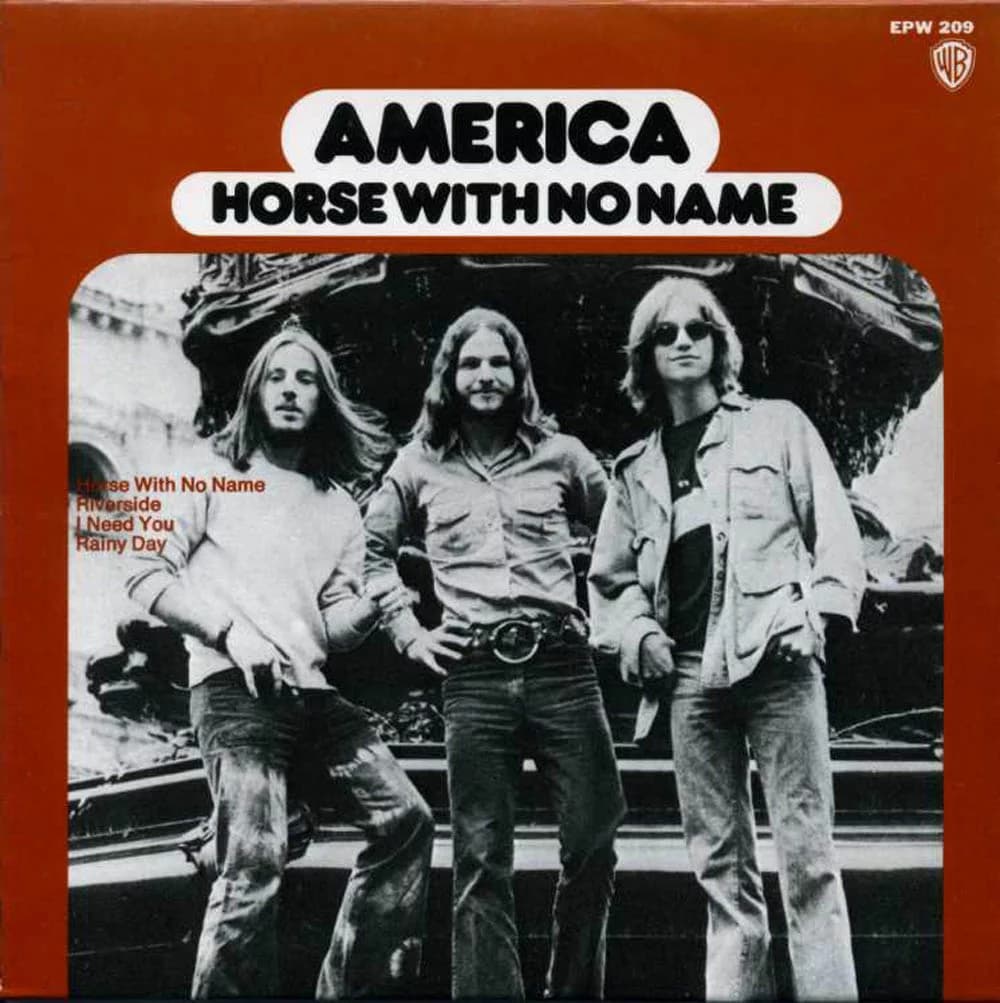
America’s A Horse with No Name: A Journey Into the Mystical Desert
Released in late 1971 in Europe and early 1972 in the U.S., America’s A Horse with No Name became an instant folk rock classic, capturing the imagination of listeners worldwide with its enigmatic lyrics and atmospheric melody. Written by band member Dewey Bunnell, the song topped charts in the U.S., Canada, and Finland, reached No. 3 in the UK, and earned a gold certification from the RIAA. It solidified America’s place in music history as one of the defining tracks of the early ’70s and remains a cornerstone of their discography.
The song’s appeal lies in its ability to transport the listener into the vast, arid landscape of the desert—a place of solitude, reflection, and mystery. Bunnell drew inspiration from multiple sources: childhood memories of the Arizona and New Mexico deserts during his time at Vandenberg Air Force Base, and artistic imagery like a Salvador Dalí painting and an M.C. Escher work that featured a horse. The imagery of a lone journey through an endless desert, conveyed through the simple yet evocative line “In the desert, you can remember your name,” encapsulates a longing for escape and clarity.
Originally titled Desert Song, the track began as a reflection of Bunnell’s fascination with the American Southwest, though it was written in a far different setting: the English countryside. While staying at the home of musician Arthur Brown near Puddletown, Dorset, the band recorded early demos to capture the barren beauty of the desert. The final recording, drenched in rich acoustic textures and layered harmonies, vividly evokes the sensation of a dry, sun-scorched landscape.
“A Horse with No Name” is built on a hypnotic two-chord progression that lends it a meditative quality. The song’s arrangement—featuring a blend of acoustic guitar, soft percussion, and haunting vocal harmonies—invites listeners to lose themselves in its simplicity. Bunnell’s vocal delivery, calm and slightly detached, underscores the surreal and introspective tone of the piece.
Much has been made of the song’s ambiguous lyrics. While some listeners have speculated that it carries hidden meanings or allegories, Bunnell has clarified that the titular horse and its namelessness are metaphors for escape—a vehicle to leave behind life’s chaos and find peace in solitude. Still, its open-ended nature allows listeners to project their own interpretations, adding to its timeless appeal.
Interestingly, the song almost didn’t exist on America’s debut album. Initially excluded from the European release, the track was added after Warner Bros. saw its potential as a single. Upon release, it quickly surpassed the moderate success of the album’s earlier offerings, propelling the band to international fame.
Despite its massive success, A Horse with No Name wasn’t without controversy. Critics and audiences alike noted its similarities to Neil Young’s style, particularly his Harvest-era sound. Young himself, however, seemed unbothered, and the comparison did little to diminish the song’s popularity.
A Horse with No Name is more than just a chart-topping hit; it’s a cultural touchstone that captures the essence of the ’70s folk rock movement. With its ethereal soundscape and introspective lyrics, it resonates across generations, offering a timeless escape into a quiet, boundless world. For many, it’s not just a song but a journey—an enduring reminder of music’s power to transport and transform.